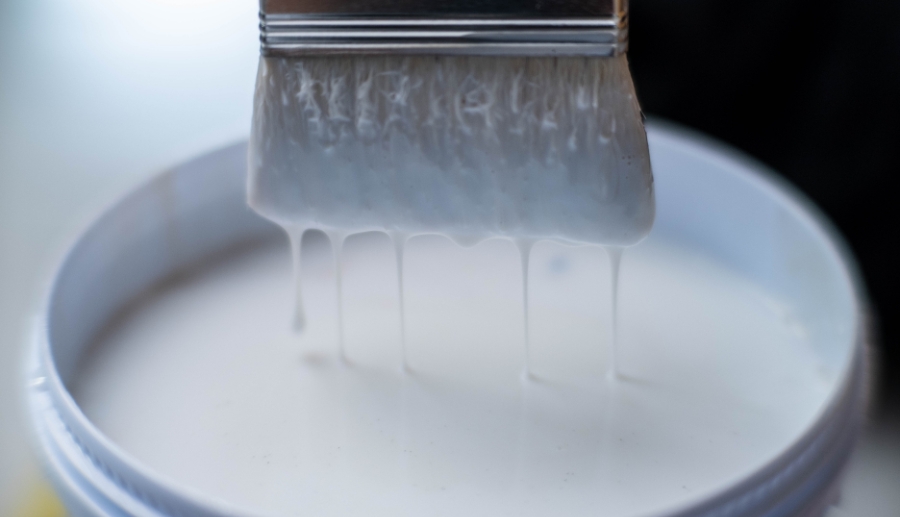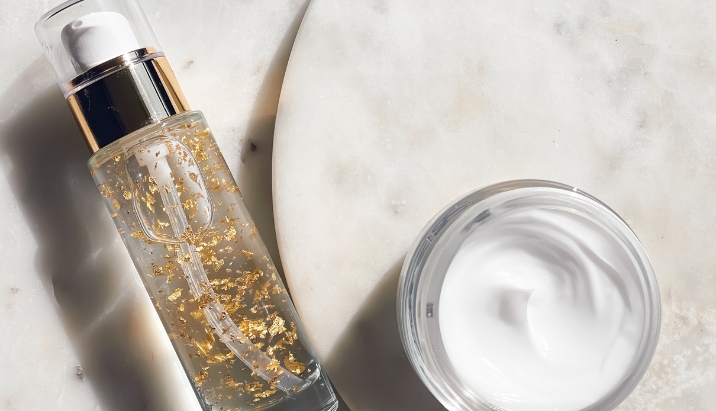
Acrylic emulsions have become a pivotal component in a wide range of coatings and formulations across various industries. Their versatility and superior properties, such as improved adhesion, durability and ease of application, make them highly sought after in residential, industrial and commercial projects.
These water-based emulsions provide long-lasting finishes for a variety of surfaces and their use spans multiple sectors, from construction to automotive to home furnishings.
This article will explore how these emulsions are applied in different markets, particularly in Brazil and Mexico, showcasing how their unique qualities contribute to the performance and aesthetics of paints and coatings in various applications.

Residential Applications: Enhancing Home Finishes with Durable Coatings
In the residential sector, water-based emulsions are widely used for wall coatings, floor finishes and decorative paints. Homeowners and builders seek durable, low-maintenance and aesthetically pleasing solutions and these emulsions provide exactly that. From living rooms to kitchens, emulsions are formulated to improve paint performance, offering enhanced resistance to wear, stains and the elements.
Interior Wall Coatings
For interior paints, emulsion resins are a preferred choice due to their ability to deliver smooth, even finishes that are easy to maintain. These paints offer good washability, making them ideal for high-traffic areas such as hallways or children’s rooms. The quick-drying nature of these emulsions also ensures minimal disruption during renovations or construction.
Exterior Coatings
When applied to exterior walls, water-based emulsions provide long-lasting protection against UV rays, rain and other weather conditions. They contribute to the aesthetic appeal of a home by maintaining vibrant colors and finishes for longer periods, even in harsh outdoor environments. Their ability to form a flexible yet durable film allows them to withstand temperature fluctuations without cracking or peeling.
Industrial Applications: Performance and Protection for Machinery and Equipment
In industrial applications, acrylic emulsions are used to formulate coatings that protect machinery and equipment from the wear and tear of daily use. Whether it’s a factory floor or an automotive production line, these emulsions offer significant advantages, such as high chemical resistance, corrosion protection and the ability to endure harsh operating conditions.
Corrosion Protection Coatings
One of the key industrial applications of acrylic-based emulsions is in corrosion protection. Industrial equipment and structural components exposed to moisture, chemicals and other corrosive elements benefit from coatings that use these emulsions. The emulsions provide a protective barrier that prevents rust and degradation, extending the lifespan of machinery and reducing maintenance costs.
Industrial Floor Coatings
Factories, warehouses and other industrial facilities require flooring that can endure heavy foot traffic, machinery movement and frequent cleaning. Acrylic emulsions are used to formulate durable floor coatings that resist abrasion and staining. These coatings provide a smooth, easy-to-clean surface that remains intact even in high-traffic areas, making them ideal for industrial environments.
Commercial Applications: Durability and Aesthetics for Business Spaces
The commercial sector, encompassing office buildings, retail spaces and hospitality industries, benefits significantly from the use of acrylic emulsions in coatings and adhesives. The balance between aesthetics and durability is crucial for commercial properties, where both visual appeal and long-term performance are necessary.
Office and Retail Space Finishes

In office buildings, hotels and shopping malls, the coatings used on walls, floors and ceilings must be both attractive and durable. Acrylic-based emulsions are used in paints that maintain their visual appeal while providing excellent resistance to cleaning agents, abrasions and staining. Their smooth, attractive finishes make them suitable for a wide range of interior surfaces.
Protective Coatings for Commercial Buildings
For commercial buildings exposed to the elements, acrylic emulsions provide excellent performance in exterior coatings, protecting facades from UV damage and weathering. These emulsions can be used to formulate paints that resist fading and cracking, helping to maintain the exterior appearance of buildings for a longer period.
Challenges and Opportunities in the Use of Acrylic Emulsions
While acrylic emulsions offer many benefits across various sectors, challenges do exist, particularly when it comes to pricing, availability and the need for specialized formulations. The price of acrylic emulsions can fluctuate depending on raw material costs, which may impact industries looking for cost-effective solutions, particularly in the construction and manufacturing sectors.
However, these challenges present opportunities for innovation. Manufacturers continue to develop new formulations that offer superior performance at competitive prices. Water-based acrylic resin products are becoming increasingly popular in response to growing demands for environmentally friendly solutions. These innovations help meet the diverse needs of both residential and commercial markets while maintaining product performance.

The Future of Acrylic Emulsions in Residential, Industrial and Commercial Sectors
The future of acrylic emulsions looks promising, particularly as industries continue to push for more efficient and durable coatings that contribute to long-term performance. As the demand for water-based emulsions continues to rise, innovations in formulation techniques will likely result in even more advanced products that offer better performance, faster application times and improved environmental profiles.
In the residential sector, the demand for emulsion-based paints that provide easy application and maintenance is expected to grow. Similarly, in industrial and commercial sectors, the need for coatings that can withstand harsh conditions while maintaining their appearance will drive the continued use of these resins.
Conclusion:
Acrylic emulsions have become indispensable in the formulation of high-performance coatings used across residential, industrial and commercial projects. Their ability to deliver durable, flexible and aesthetically appealing finishes makes them a go-to choice for manufacturers and contractors. As demand for more efficient, environmentally friendly solutions grows, the role of water-based acrylic resins will continue to expand, ensuring that these emulsions remain at the forefront of industrial coatings and paint applications. The future of coatings in these sectors will undoubtedly be shaped by further developments in acrylic emulsions, offering even better durability and ease of use for various applications.
- Ketonic Resins vs. Traditional Resins in Industrial Coatings: Comparative Analysis
- Applications of Acrylic Emulsions across Residential, Industrial and Commercial Projects
- Role of Rosin Modified Phenolic Resins in Brazil and Mexico’s Industries
- Phenolic Resin in South Africa and Egypt: A Comparative Market and Supply Chain Analysis
- Titanium Acetylacetonate in Asian Catalysis: Driving Innovations in Petrochemicals and Green Chemistry



